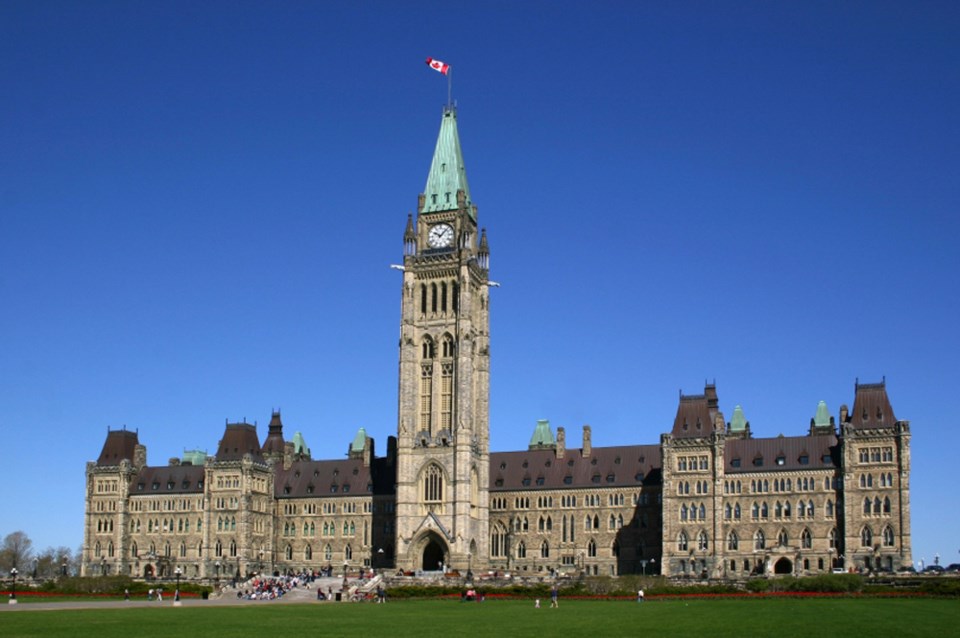The St. Albert and District Chamber of Commerce, working with St. Albert-Edmonton MP Michael Cooper, has launched a petition that calls on Ottawa to scrap an increase to the capital gains tax inclusion rate.
The new rate will disadvantage businesses small and large and burden already stressed economic sectors such as primary care, housing and agriculture, and it has many St. Albert entrepreneurs concerned about future profits, according to chamber chair Rosanna Fischer.
“This tax impacts far more than just the wealthy,” Fischer said. "All everybody's trying to do after COVID is just survive.”
The capital gains tax is a levy imposed on the profit earned from selling assets like real estate, stocks or a business. It’s calculated based on the difference between the purchase price and the selling price of an asset.
Starting June 25, individuals who make more than $250,000 in capital gains on the sale of an asset will have 66 per cent of the profits included as taxable income, instead of the previous rate of 50 per cent. However, corporations will have to pay the new rate for all their capital gains, regardless of whether the profit exceeds the $250,000 threshold.
“It's almost like we're taxing the very people that try to move this economy forward,” Fischer said. “In Alberta, we've always had this can-do attitude, and we'll do whatever it takes, but at some point, you have to put your foot down.”
The Chamber approached Cooper in May, seeking a strategy to confront Ottawa about the tax. He said a grassroots campaign could be more effective than the opposition Conservatives attempting to reverse the tax increase themselves.
Cooper can announce the digital petition in the House of Commons once it has gathered 500 signatures. It currently has 198 signatures, primarily, but not exclusively, from Alberta.
St. Albert accountant Ken Macrae said many local business owners who he works with feel the tax is unfair.
“They want to know if they should be selling their investments,” he said.
Individuals who have incorporated their businesses and invested excess profits into the stock market will now have to pay the higher rate on any stock that they sell.
“The majority of my business clients are plumbers, electricians, carpenters, restaurateurs who happen to own their businesses through corporations and are saving for their retirement through corporations,” he said.
Many business owners feel they do not belong to the wealthiest demographic that the tax increase is aimed towards, he said.
Only impact wealthiest, Liberals say
Finance Minister Chrystia Freeland on Monday introduced a motion that will prompt the house to vote on a bill, separate from the federal budget, that will initiate the tax hike.
The Liberals have maintained the tax will affect only 0.13 per cent of the wealthiest Canadians as well as 12 per cent of corporations and Canadians who make $1.42 million a year.
“Many of the wealthiest Canadians make most of their money through investments, not income, but because of how investment gains are taxed, well-off Canadians can wind up paying a lower marginal tax rate than a nurse or a plumber,” Freeland said at a Monday press conference. “That’s not fairness; that’s favouritism.”
The money will be used to invest in younger generations by building more housing and reducing the country’s cost of living, she said.
Conservatives pushed back, calling the change “a tax on health care, homebuilding, small businesses, farmers and people's retirements."
The Canadian Medical Association said the change could further destabilize primary care in Canada. Family doctors typically pay overhead costs for their clinics.
Business interest groups have also warned the tax will hurt investment in Canada’s economy, create market volatility, diminish retirement savings and make Canada less competitive in the global market.
However, economic researchers are split on whether this is the case.
Katrina Miller, executive director of the non-profit Canadians for Tax Fairness, pointed to a report from her organization showing that higher inclusion rates aren’t coupled with worse productivity growth.
The rate has fluctuated between 50 per cent and 75 per cent since the tax was introduced in 1972. It was cut to 50 per cent in 2000, but labour productivity, a measure of economic output per hour of labour, hasn’t increased in the nearly 25 years since the cut, the report shows.
“What it costs to run our health care system, what it costs to build our roads, all those things our taxes go to, the burden of that is going to be shared more fairly now,” Miller said.
Miller also pointed to a capital gains exemption and tax break on the first $3.25 million that some small business owners earn in capital gains over their lifetime.
“Frankly, it’s very generous,” she said.
“An equitable, stable society is absolutely critical to economic productivity,” she said. “Frankly, we need tax revenue in order to build that society.”
A vote on whether the House of Commons will consider the new inclusion rate is expected later this week.



